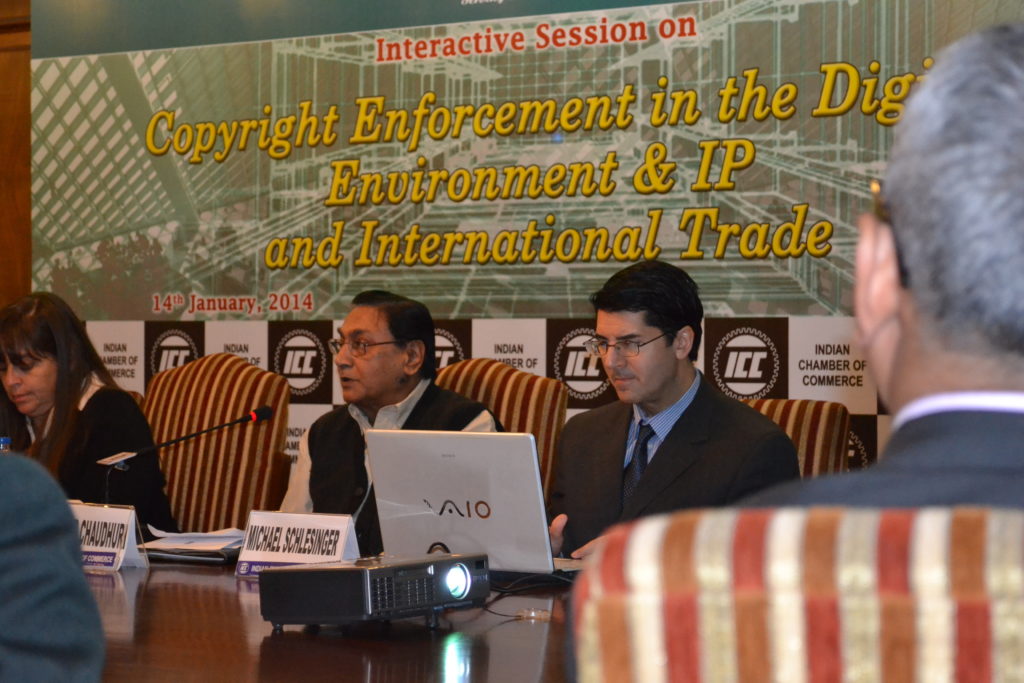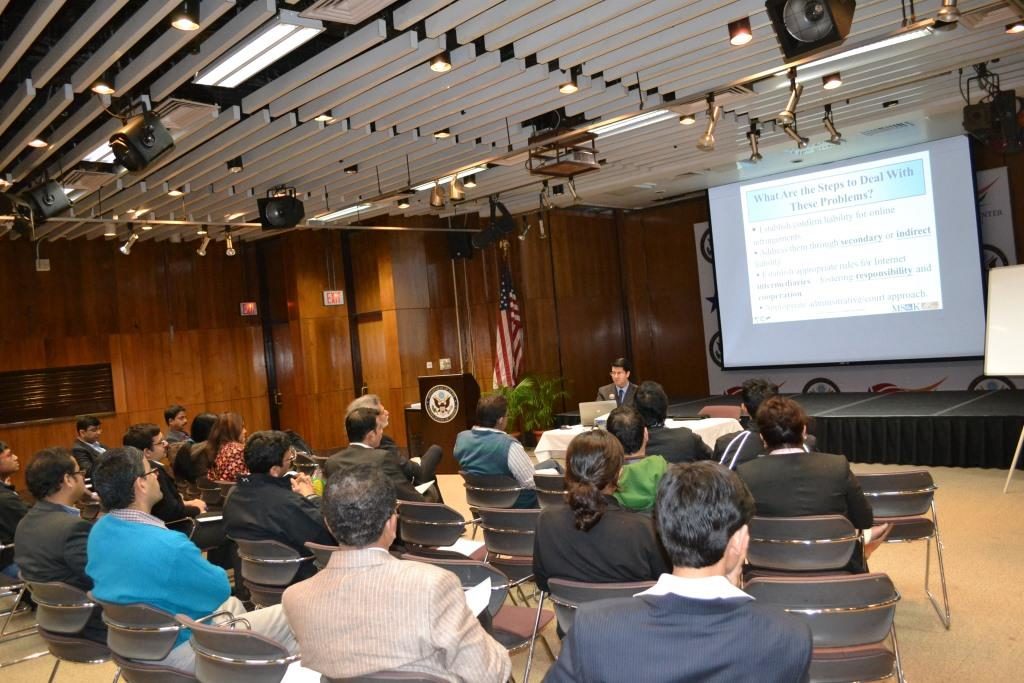When most individuals think of the Indian film industry, Bollywood immediately comes to mind — Bollywood, the behemoth business that produces over 1,000 films a year, or twice the number Hollywood produces. These theatrical and spectacular productions have given Bollywood its reputation as a giant in the international world of film and media, especially due to the sheer volume of films produced by the Indian industry. However, in comparison to the U.S., whose film industry brings in $51 billion a year, Bollywood’s revenue is only about $4.5 billion. Why the extreme discrepancy? While many reasons can explain the lack of revenue garnered by Bollywood, one of the main reasons is the amount of—and lack of regulation against—piracy in India.
Intellectual property (IP) rights and protection are some of the biggest issues facing India today, and were the focus of Michael Schlesinger’s recent trip to the country. Schlesinger, an Of Counsel Mitchell, Silberberg & Knupp LLP, GWU law professor, and expert in the IP rights and copyright-protection field, is more than qualified to speak and present on International Property Rights issues that not only India is facing, but other countries around the world as well. Through the U.S. Speaker and Specialist Program in India, created by the partnership between Meridian International Center and the Public Affairs Section of the U.S. Embassy in New Delhi (NDPAS), the Program was designed to send U.S. experts in certain fields—such as climate change, alternative energy and, in Schlesinger’s case, intellectual property rights — to India to speak and conduct seminars, workshops, and discussions about their specific topics.

For Schlesinger, speaking on an issue he is so immersed in to audiences that hold a tremendous stake in the issue abroad was a very gratifying and immersive experience. Being able to speak in front of a variety of different audiences, including student groups, NGOs, government officials, and industry individuals, was a wonderful way for Schlesinger—a man who has worked in both the private sector and academia—to educate, inform, and advocate on behalf of IP rights and copyright protection. Given the amount of growth population and economy-wise in India at the current time, Schlesinger believes his message was widely received. Right now, he noted, “India is probably the country with the greatest capacity to grow as an IP-intensive juggernaut,” but is also, “facing some of the most significant challenges in the world in IP.”
One of the groups Schlesinger most enjoyed speaking with were the students at universities around India. Due to the fact that the IT infrastructure is growing at such a rapid pace in India, students studying these fields are increasingly necessary. One issue that surfaced during these discussions, as well as during those with industry figures, was that of piracy. Many students Schlesinger encountered were skeptical of the prospect of actually paying for entertainment — i.e. buying a movie ticket instead of streaming it online, or getting a song from a music source such as iTunes instead of downloading it illegally. While Schlesinger was unable to convince all audience members of the idea of purchasing entertainment, he did receive emails from other audience participants who told him he was absolutely right in his speeches, and that actually giving money to the music and film industries made perfect sense.

Industry officials were another audience where Schlesinger was able to reach out and inform, as well as learn about the differences and discrepancies between U.S. and Indian interests. One such industry figure was a film producer named Daggubati Suresh Babu, a man who has produced many Indian films over the years. Recently, however, the choice to even produce a film is a difficult decision, given the short window of time that the film goes unpirated. Mere hours separate a film’s release time and the time when it can be found online, free to viewers.
In terms of learning experiences, the trip allowed for not only Indian audiences to learn and profit from Schlesinger’s expertise, but also for Schlesinger himself to learn more about the stakeholders in the Indian IP rights issues, and how the disconnect between Indian IP-interest groups and the state and federal of government has caused problems. One thing that is hard when travelling abroad, said Schlesinger, is “that I know I will learn more about problems than advice I can give”. Conversely, Schlesinger spoke extensively on the growth potential of India; by nurturing several key industries, he believes the country will be able to improve on many of its issues in just a few years.

While most of Schlesinger’s trip was comprised of seminars, talks, workshops, and presentations on IP-related matters, some of his encounters and experiences in India were not as policy-focused. In what could have been an extremely ill-fated glitch, Schlesinger left all of his ties at home, but was extremely fortunate when his hotel in Mumbai was able to lend him a tie before he had a chance to venture to an Indian shopping center. “I wore that tie with great pride,” he noted. He also remarked on his experience in Delhi wherein he arrived to a city completely inundated with fog. Despite the extreme visibility barriers, his taxi driver was able, at two in the morning, to point out every single landmark and important site in the city. This dedication and attention to detail was echoed in all industries Schlesinger encountered during his trip and shows the enormous growth potential the country has in all fields. For more information on Meridian International Center’s U.S. Speaker program for India, please click here.
















